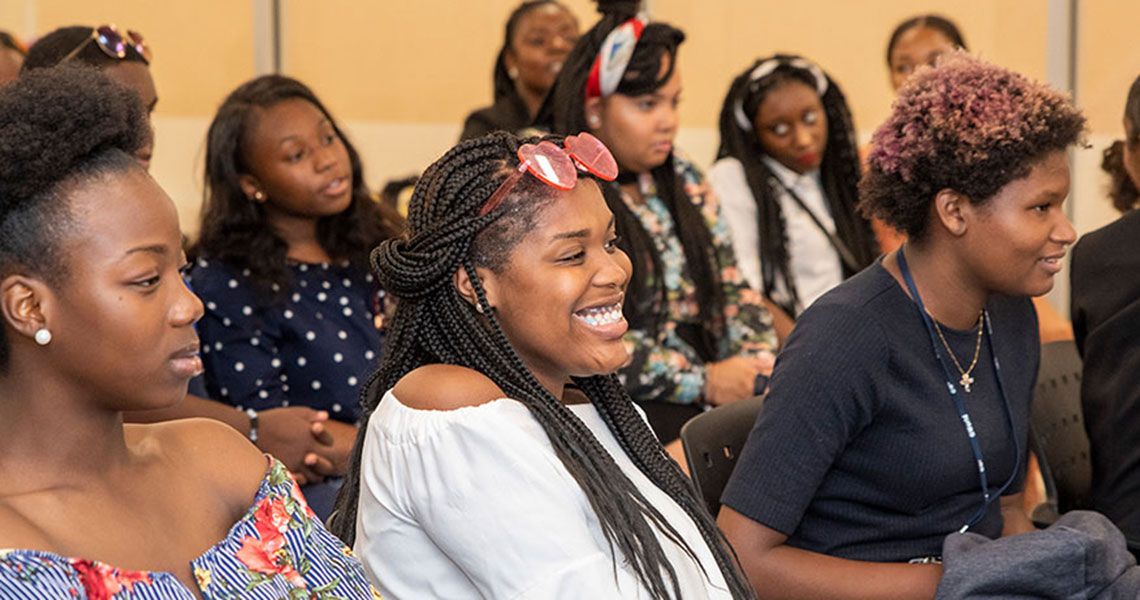Genesis Tackie joined the George Washington University School of Medicine and Health Sciences (SMHS) Upward Bound program to enhance his education and improve in school. He didn’t know he would find a new community, a group of like-minded friends “who want to better themselves.”
“It’s like a family. It’s a lot of different kids from a lot of different schools who I probably wouldn’t have ever met if I had not been in Upward Bound,” said Tackie, a rising junior at Parkside High School in Ward 6 of northeast Washington, D.C.
The program, the only one housed within a university medical school, began with the passing of the Economic Opportunity Act of 1964. Upward Bound falls under the umbrella of federal TRIO programs, named for the first three programs created by the act — Upward Bound, Talent Search, and Student Support Services. The programs are dedicated to providing access and exposure for potential first-generation college students and students from lower income families.
For many of the students who join the program, it’s an added layer of support, said Janeale Gottlieb-George, MSEd, director of Upward Bound. Students may not get all the help they need from school counselors or at home, and that’s where Upward Bound comes in.
“We have the resources and language that maybe their parents don’t have. We can help them communicate with colleges, and they can depend on us for that. Having that resource is empowering to them,” she said.
The year-round program includes tutoring sessions on Tuesdays and Wednesdays, a Saturday academy during the school year, and a six-week summer immersion program.
Students also tour colleges during the spring and summer. This year, Upward Bound students visited schools in the southeast, including in North Carolina, Alabama, and Georgia, as well as schools in the northeast, in New Jersey and New York.
Tackie’s vision for the future lies in the field of dermatology, and he said the college tours opened his eyes to his options. “I want to go to Clark Atlanta [University], and we visited there,” he said, beaming. “I found out what they want for a GPA, it’s something I hadn’t looked up, but then I got to visit and experience the campus.”
Inez Denton, rising senior at Gwynn Park High School in Prince George’s County, Maryland, also noted the importance of the support the program offers. “If you don’t have a strong foundation at home, you come here and you have someone to talk you through college and things that are a necessity for life,” she said.
During the summer session, the students take classes in the morning, getting extra education in subjects like math, science, English, and a foreign language. The classes are meant to complement what the students learn during the school year, Gottlieb-George explained.
“It’s to show them what they may see in the fall, and to get them confident in what they already know,” she said. “We want to structure, support, and solidify the work have done with their teachers in school.”
This summer, the students also attended career panels of young professionals in D.C., took a CPR certification class, and participated in an art therapy session.
Tackie mentioned that both the CPR class and art therapy session taught him something new. “This program opens your eyes to things you may never have heard about or ever have known,” he said.



